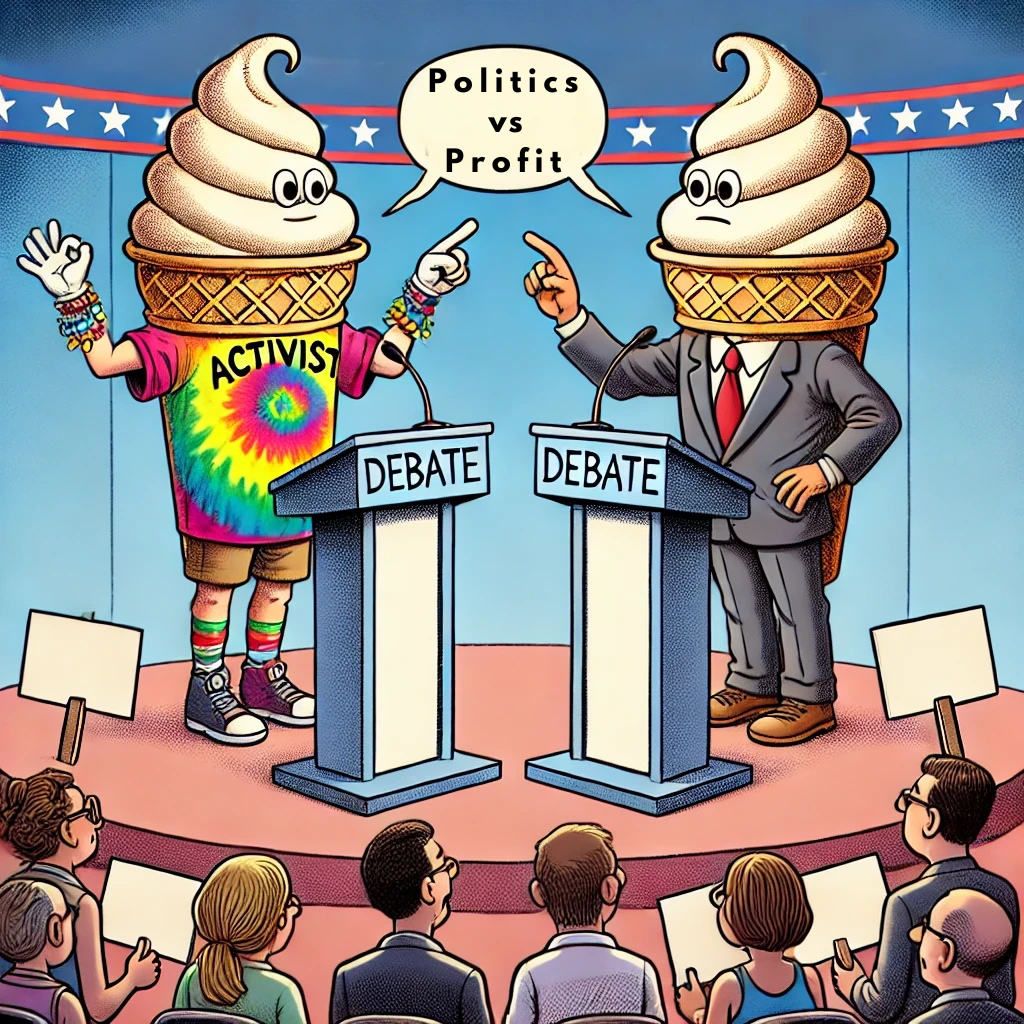Ben & Jerry’s, the famous ice cream brand known for mixing politics with frozen desserts, is in hot water with its parent company, Unilever.
The Vermont-based company is claiming that Unilever unlawfully fired its CEO, David Stever, because of his commitment to social activism.
Now, this battle is heading to the courtroom, with Ben & Jerry’s accusing Unilever of breaking the promises made when the companies merged.
For years, Ben & Jerry’s has used its brand to push political causes, from climate change to social justice.
This approach has won them a loyal fan base among liberal consumers but has also turned off many who believe businesses should stick to selling products, not politics.
Stever, who had been with the company for decades, was a strong supporter of this activist approach.
Unilever, on the other hand, seems to have had enough.
The global corporation, which owns several brands around the world, appears to be moving toward keeping its businesses focused on making money, not making political statements.
That’s why, according to Ben & Jerry’s, Stever was pushed out.
BREAKING: Ben & Jerry’s parent company has fired the CEO after he pushed ultra-far-left politics instead of running the company. pic.twitter.com/d4HPpdxMtJ
— Eyal Yakoby (@EYakoby) March 19, 2025
This situation is another example of a growing debate in America: should businesses take political stands, or should they focus on their core mission—providing goods and services to customers?
Some argue that when companies get too involved in politics, they alienate large portions of their customer base. Others say that businesses have a responsibility to speak up on important issues.
Ben & Jerry’s is not taking this lightly.
The company is suing Unilever, saying the firing of Stever violated the agreement they made when they sold the business in 2000.
That deal, according to Ben & Jerry’s, gave them the right to control their own brand image and mission—even under Unilever’s ownership.
This isn’t the first time Ben & Jerry’s and Unilever have clashed.
Just last year, the ice cream maker made headlines for trying to stop Unilever from selling its products in Israel, citing concerns over the country’s policies regarding Palestinians.
Unilever overruled them, saying that business decisions should be made based on financial, not political, factors.
Critics of Ben & Jerry’s say this is yet another example of why businesses should stay out of politics. Supporters of Ben & Jerry’s, however, argue that brands should stand for something.
Public reaction is divided. There has been a growing frustration with corporations pushing agendas rather than simply selling their products. This isn’t just about ice cream.
The Ben & Jerry’s vs. Unilever fight represents a larger trend in the business world.
Major brands like Disney, Target, and Bud Light have faced backlash for taking political stances, with some suffering financially as a result.
Bud Light, for example, lost billions in market value after its controversial marketing partnership with a transgender influencer.
The lesson here?
Companies risk alienating customers when they pick sides in political debates.
While some may support their stance, others may walk away—and in a competitive business world, that can be costly.
This article was written with the assistance of AI. Please verify information and consult additional sources as needed.




